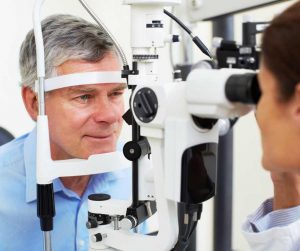
What is a Regular Health Check Up and why are they important?
Regular health check ups can identify any early signs of health issues. Finding problems early means that your chances for effective treatment are increased. Many factors such as your age, gender, family history, lifestyle choices determine the types of health check ups you will need and will impact on how often you need a health check up.
If you’re under the age of 35, health checks every 2-3 years is sufficient enough, however annual assessments are recommended for those who have family members suffering from chronic diseases such as diabetes, hypertension, high cholesterol, heart disease, arthritis, etc. People above age 60 or with pre-existing chronic illness should also consider a bi-annual check-up to ensure their health is maintained at its optimum level.
We have more information about health check ups and screening here and information about our comprehensive health checks here.
All Ages Health Check Up:
1. Melanoma/Skin Cancer
In addition to self-checks, you should also see a GP or a skin cancer doctor for a full-body skin examination at least once a year. If you are at high-risk of skin cancer, your doctor will request that you have more frequent checks. This might be every three or six months, depending on your risk factors.
 2. Dental Health
2. Dental Health
Most dentists recommend a routine dental check-up every 6 to 12 months, but a cookie cutter approach does not necessarily work for everyone. Some may need to visit a dentist more or less frequently and the dentist will advise how often a check-up is required.
20-40’s Health Check Up:
1. Sexual Health
- STI Check
- Chlamydia test
2. Cervical Cancer (Women)
The Pap test has been replaced with a new Cervical Screening Test (CST) every five years. The CST is safe, more accurate and detects human papilloma virus (HPV) infection, the main cause of cervical cancer. Your first CST is due at 25 years of age or two years after your last Pap test. If your result is normal you will be due in five years to have your next test. Even if you have been vaccinated against HPV, you should continue to have regular screening as the vaccine doesn’t protect against all types of HPV infection known to cause cervical cancer.
3. Reproductive Health (Women)
If you are planning to have a baby, chat to your GP about how to prepare yourself.
4. Heart Health
- Blood pressure
- Cholesterol (40’s)
Read more about heart health here and here.
 5. Diabetes
5. Diabetes
If you are over 40 you should be screened for type 2 diabetes. Your GP will use a questionnaire known as AUSDRISK for this.
6. Breast Health (Women)
Ensure you’re keeping up with your monthly self-exams and see your doctor if you notice any abnormalities such as changes to the shape of your breast, discomfort, dimpling on the skin or redness.
7. Mental Health
If you experience symptoms such as intense sadness, anxiety, irritability and changes to eating and sleeping habits for more than two weeks, chat to your GP about a mental health plan.
8. Testicular Health (Men)
A testicular self-check is especially important in your 20s and 30s as testicular cancer is the second most common type of cancer in young men aged 18-39.
50’s+ Health Check Up:
1. Breast Cancer
It’s recommended that women between the ages of 50–69 years attend the BreastScreen Australia Program every two years for screening mammograms. Women aged 40 – 49, and those over 74, can also be screened free of charge on request.
2. Bowel Cancer
When you reach 50, it’s recommended that you take a faecal occult blood test (FOBT) every two years to screen for bowel cancer (yes, it means testing your poo). The National Bowel Cancer Screening Program sends free at-home sample collection kits to people over 50 in the mail, but if you haven’t received one, chat to your GP or pharmacist.
3. Bone Density
As your body winds back oestrogen production, bone density will begin to decrease which can lead to osteoporosis. Your GP can let you know if you need to have a bone density test.
 4. Heart Health
4. Heart Health
Instead of every two years, these tests should now be performed annually:
- Blood pressure
- Cholesterol
5. Prostate Cancer
Discuss testing with your doctor. It is not recommended that all men are routinely tested for prostate cancer. You will need to consider the benefits, risks and uncertainties of testing, as well as your risk of developing the disease. More information about men’s health can be found here.
Can I perform a Health Check Up at home?
It is recommended that you perform regular checks at home to help keep track of your health, monitor ongoing conditions and check symptoms.
- Skin checks: Skin cancer is one of the most common forms of cancer but you can screen yourself quite easily. Check yourself once a month, looking for new growths or moles that have changed or started to bleed, itch, burn or crust over. Speak to a doctor if you find these.
- Breast checks: It’s important to be familiar with how your breasts look and feel at different points in your menstrual cycle. Breast changes can happen for many reasons, and most are not serious. Contact your GP if you notice any changes such as lumps, thickening of the skin or changes in colour.
- Diet: A healthy diet improves your general health and wellbeing.
- Weight: Maintaining a healthy weight range helps prevent longer term diseases such as diabetes.
- Smoking: Smoking increases your risk of many diseases. By quitting you can reduce the harm and lessen your chances of developing heart disease, lung disease or having a stroke.
- Alcohol: ensure you stick to the recommended intake of alcohol for men and women throughout the week.
 You should also speak with your doctor about immunisations in particular:
You should also speak with your doctor about immunisations in particular:
- a pneumococcal vaccine if you have never had one, or if it has been more than five years since you had the vaccine
- an annual flu shot
- a tetanus-diphtheria-pertussis booster every 10 years
- a shingles or herpes zoster vaccine
Check-ups with other health professionals may include:
- a dental exam – every year or so, or more often if recommended by your dentist.
- an eye test – every one to two years if you have vision problems or glaucoma risk
- a hearing test – if you have symptoms of hearing loss.


 2. Dental Health
2. Dental Health 5. Diabetes
5. Diabetes 4. Heart Health
4. Heart Health You should also speak with your doctor about immunisations in particular:
You should also speak with your doctor about immunisations in particular: